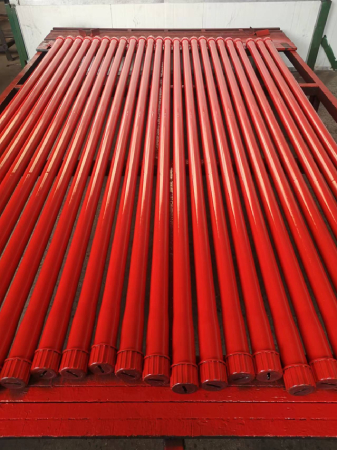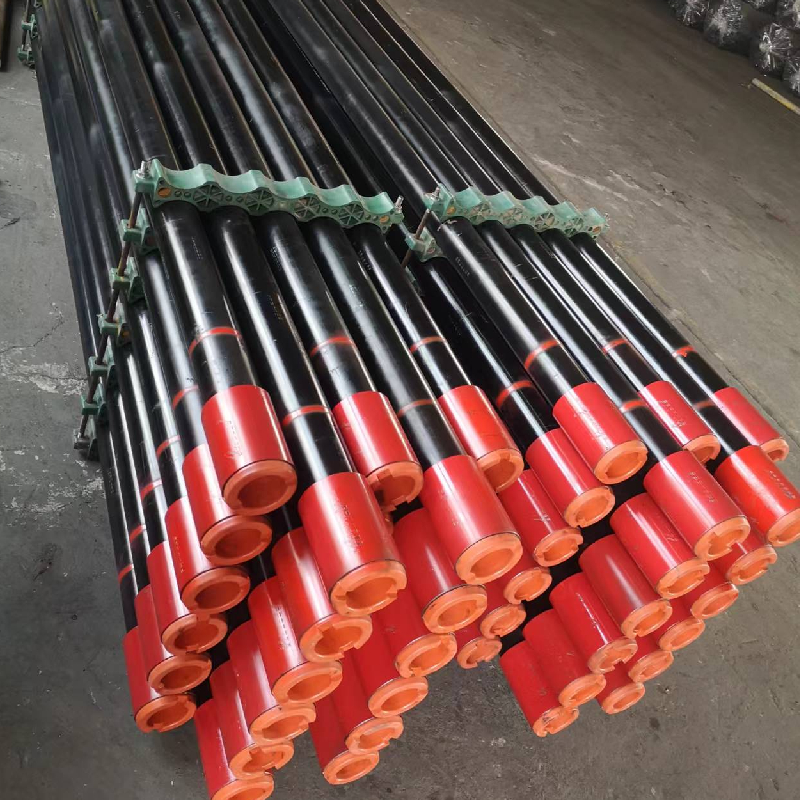Tubing Pup Joint- Hengshui Weijia|Oil & Gas Efficiency&Pressure Resistance
Tubing Pup Joints are essential components in the oil and gas industry, designed to connect sections of tubing and ensure seamless fluid flow from reservoirs to the surface. These critical connectors provide flexibility, pressure resistance, and adaptability, making them indispensable in modern well operations. Manufactured by Hengshui Weijia Petroleum Equipment Manufacturing Co., Ltd., these joints adhere to industry standards like API 5CT, ensuring reliability and performance in demanding environments.


Understanding Tubing Pup Joints
Tubing Pup Joints are short sections of tubing used to adjust the length of a tubing string or isolate specific sections of a wellbore. They serve as vital connectors between the main tubing string and other completion equipment, ensuring a tight seal to prevent leaks or production loss. These joints are available in various sizes and configurations, tailored to meet the unique demands of oil and gas operations.
One specialized variant, the perforated pup joint, features small holes along its length to facilitate fluid flow in and out of the wellbore. This design is particularly useful for filtering out sand or solid particles, reducing blockages and maintaining smooth production flow. The ability to install and remove these joints easily adds to their versatility, making them a preferred choice for operators seeking efficiency and reliability.
Key Features and Advantages
- Flexibility and Adaptability: Tubing pup joints accommodate varying wellbore dimensions, allowing operators to customize tubing strings for specific applications.
- Pressure Resistance: Engineered to withstand high-pressure environments, these joints ensure safe and efficient fluid transportation.
- Seal Integrity: Advanced designs prevent leaks, maintaining production efficiency and environmental safety.
- Cost-Effective Solutions: By enabling precise adjustments, these joints reduce material waste and operational downtime.
- Compliance with Standards: Manufactured to API 5CT specifications, they guarantee quality and interoperability with industry equipment.
Technical Specifications
| Parameter | Details |
|---|---|
| Material | Carbon Steel, Alloy Steel (as per API 5CT) |
| Dimensions | Varies by application (e.g., 2.375", 3.5", 4.5") |
| Pressure Rating | Up to 10,000 psi (depending on grade) |
| Connection Type | API Threaded Ends |
| Surface Treatment | Corrosion-resistant coatings (optional) |
Application Scenarios
Tubing Pup Joints are widely used in the following scenarios:
- Well Completion: Connecting tubing strings to production equipment, ensuring seamless flow paths.
- Workover Operations: Isolating sections of the wellbore for maintenance or stimulation treatments.
- Perforation Operations: Facilitating fluid exchange in perforated zones to enhance production.
- Downhole Tools Integration: Enabling the deployment of tools like packers and valves.
For example, in perforated pup joints, the strategically placed holes allow for controlled fluid flow, making them ideal for sand management and well stimulation. This application is critical in formations with high particulate content, where unfiltered production can lead to equipment damage or reduced efficiency.
Company Background: Hengshui Weijia Petroleum Equipment Manufacturing Co., Ltd.
Hengshui Weijia Petroleum Equipment Manufacturing Co., Ltd. is a leading manufacturer of oil and gas equipment, specializing in high-quality tubing components. With a commitment to innovation and precision, the company ensures its products meet global standards like API 5CT and ISO 9001. Their expertise in designing pup joint oil and gas solutions has made them a trusted partner for operators worldwide.
Visit Hengshui Weijia's Product Page to explore their full range of tubing pup joints and related equipment.
Industry Standards and Compliance
The API 5CT standard, developed by the American Petroleum Institute, establishes rigorous guidelines for the manufacturing and testing of tubular goods. By adhering to these standards, Hengshui Weijia ensures its tubing pup joints are durable, safe, and compatible with international oil and gas infrastructure.
For further details on API 5CT specifications, refer to the National Institute of Standards and Technology (NIST) website. While direct access to NIST resources was unavailable during this search, the API 5CT standard remains a cornerstone of industry compliance.
Conclusion
Tubing Pup Joints are indispensable in modern oil and gas operations, offering flexibility, durability, and precision. Whether used for standard connections or specialized applications like sand management, these joints play a pivotal role in optimizing well performance. Hengshui Weijia Petroleum Equipment Manufacturing Co., Ltd. continues to lead in providing reliable, high-quality solutions that meet global standards and exceed customer expectations.
For more information on pup joint manufacturers and their innovative products, visit WJ Petroleum's Website.
References
NIST (National Institute of Standards and Technology) provides critical standards and research for industries, including oil and gas. While direct access to specific pages was unavailable during this search, the NIST website remains a trusted source for technical guidelines and compliance information.
API 5CT standards ensure the quality and reliability of tubular goods in the oil and gas sector. For detailed specifications, consult the official API website.
-
Tubing Crossover - API Compatible, Custom Sizes, In StockNewsNov.10,2025
-
Tubing Coupling | High-Strength, Leak-Proof Steel CouplingsNewsNov.10,2025
-
Wholesale API Threading Casing Coupling | API 5CT, Fast ShipNewsNov.10,2025
-
Pup Joint Supplier | API Certified, Custom, Quick ShipNewsNov.10,2025
-
Pup Joint Manufacturers | Precision Machined, Fast DeliveryNewsNov.10,2025
-
Tubing Coupling | Precision Steel, Leak-Proof, Fast DeliveryNewsNov.03,2025







